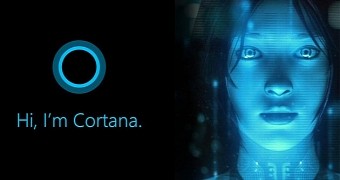Microsoft has recently been granted a patent that would technically allow the company to configure Windows 10 devices in such a way that they would know which one you are talking to when saying the “Hey Cortana” magic command to wake up the personal assistant.
Redmond invested millions of dollars in making Cortana a key feature of Windows 10, so it’s now available on all devices, be they phones, PCs, or tablets. And because Microsoft wants users to have the full ecosystem of devices, simply saying “Hey Cortana” could trigger the personal assistant on laptops, tablets, PCs, smartphones, and pretty much any other device that supports Cortana and is in your proximity.
Certainly, that could easily become frustrating and makes Cortana quite ineffective, but Microsoft is working on a new technology that could address this problem.
A patent granted to the company reveals that the software giant developed what is being called a “Device Arbitration for Listening Devices” technology that would basically help devices figure out which one you’re talking to.
Commands transferred to the appropriate device
Basically, the patent information shows that devices will be able to make a difference by simply analyzing the command you give, so if you say “Hey Cortana, call someone,” then your phone will be the only one waking up because the PC would make no sense in this case.
Tasks will always be transferred to the appropriate device, and several factors will be taken into account, including the device you are working on. If, for instance, you are currently in front of your PC and browsing the web, when you call Cortana by name, the personal assistant should automatically wake up on the desktop because it’s the closest one that could respond to your command.
Without a doubt, this is quite a helpful feature for those who want to make the most of Cortana, but there’s no sign just yet that this tech could be introduced in Windows 10. At some point in the future, however, it could actually make sense.

 14 DAY TRIAL //
14 DAY TRIAL //